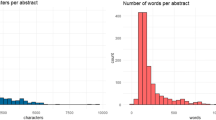Abstract
Although the traditional society in China was not necessarily a society of equality, and the classical Confucianism did not speak much about the principle of universal equality, in modern times, in the midst of a transformation of value systems, people still find correlating sources within the Confucian tradition that is connected to the modern idea of equality. This essay makes a detailed study on this correlation and points out that ancient Chinese society and the western feudal society are different in terms of social systems and education systems. For example, China has the imperial examination but no patrimonial aristocracy. Confucianism opposed the huge gap between the poor and the rich, and this idea has become a modern tradition in the ideal of “great harmony under the sky,” especially in Kang Youwei’s 康有为 Datong Shu 大同书 (Book of Great Harmony). There were also some elements of agricultural socialism and equalitarianism in traditional Confucianism. The potential idea of equality (or reciprocity) in “friendship,” embodied in the principle of Confucian ethics of the Three Bonds and the Five Relations, is explored and explained in a modern way. The theory that the sages are equal with the masses, which originated from the theory of human being’s intrinsic goodness, may be directly connected with modern principle of equality. The modern transformation of equality is both political and ethical. The former is to struggle for individual rights; the latter is to establish moral subjectivity. Therefore, equality between sages and the masses manifests modernity. Like the epistemic subjectivity, which could not be discussed without referring to group-individual relationship, the moral subjectivity also contains a consciousness of equality.
Similar content being viewed by others
References
Aristotle (1910). The Nicomachean Ethics, trans. by R. W. Browne. London: G. Bell and Sons, Limited
Aristotle (2003). Nicomachean Ethics (in Chinese). Beijing: Shangwu Yinshuguan
Callinicos, A. (2003). Equality (in Chinese). Nanjing: Jiangsu Renmin Chubanshe
Gernet, J. (1985). China and the Christian Impact: A Conflict of Cultures, trans. by J. Lloyd. Cambridge: Cambridge University Press
Chan, Wing-tsit (1969). A Source Book in Chinese Philosophy. Princeton, New Jersey: Princeton University Press
Hall, D. L. and Ames, R. T. (1999). The Democracy of the Dead: Dewey, Confucius, and the Hope for Democracy in China. Illinois: Open Court Publishing Company
Howard S. and Harry M. (1963). Reader in Marxist Philosopher: From the Writings of Marx, Engels and Lenin. New York: International Publishing Corporation
Kang Youwei (1998). Kang Youwei Lun Datong Shu Liangzhong 康有为论大同书两种 (Kang Youwei’s Two Essays on the Great Harmony). Beijing: Sanlian Shudian
Kekes, J. (2003). Against Liberalism (in Chinese). Nanjing: Jiangsu Renmin Chubanshe
Knoblock, J. (1988). Xunzi: A Translation and Study of the Complete Works. Stanford, California: Stanford University Press
Lau, D. C. (1976). Mencius: Translated with an Introduction. Harmondsworth, Middlesex: Penguin Books Ltd.
Li Zhenhong (2005). “—’Bu Huangua er Huan Bujun’ de Jieshuo” “不患寡而患不均” 的解说 (“Explanation on ‘Concerns Himself Not with Scarcity’ but Rather with Uneven Distribution”). Ershiyi Shiji, June
Liang Qichao (1989). Yinbingshi Heji 饮冰室合集 (Collections of Liang Qichao), Vol. 4. Beijing: Zhonghua Shuju
Tan Sitong (1981). Tan Sitong Quanji 谭嗣同全集 (The Collected Works of Tan Sitong). Beijing: Zhonghua Shuju
Taylor, C. (2000). Sources of the Self: The Making of Modern Identity (in Chinese). Shanghai: Yilin Chubanshe
Tu Weiming (1993). Way, Learning, and Politics: Essays on the Confucian Intellectual. New York: State University of New York Press
Wang Chong (2008). Lun Heng 论衡 (A Well-Balanced Discussion). Changchun: Shidai Wenyi Chubanshe
Watson, R. S. (2008). Xiongdi bingbu Pingdeng: Huanan de Jieji he Qinzu Guanxi 兄弟并不平等: 华南的阶级和亲族关系 (Inequality among Brothers: Class and Kinship in South China) (in Chinese). Shanghai: Shanghai Yiwen Chubanshe
Xu Zhuoyun (2007). Cong Lishi Kan Shidai Zhuanyi 从历史看时代转移 (Transfer of Time Viewed from the Angle of History). Guilin: Guangxi Shifan Daxue Chubanshe
Zhang Taiyan (1985). Zhang Taiyan Quanji 章太炎全集 (Complete Collections of Zhang Daijian), Vol. 4. Shanghai: Shanghai Renmin Chubanshe
Zhu Xi (1996a). —Daxue Zhangju Xu 大学章句序 (Preface to an Interpretation of the Great Learning). In: Sishu Zhangju Jizhu 四书章句集注 (The Collected Annotation on the Four Confucian Classics). Beijing: Quanguo Tushuguan Wenxian Suowei Zhongxin
Zhu Xi (1996b). —Zhongyong Zhangju 中庸章句 (An Interpretation of Doctrine of the Golden Mean). In: Sishu Zhangju Jizhu. Beijing: Quanguo Tushuguan Wenxian Suowei Zhongxin
Author information
Authors and Affiliations
Corresponding author
Additional information
Translated by YAN Xin from Shehui Kexue 社会科学 (Social Sciences), 2009, (4): 120–127
About this article
Cite this article
Gao, R. The source of the idea of equality in Confucian thought. Front. Philos. China 5, 486–505 (2010). https://doi.org/10.1007/s11466-010-0111-5
Published:
Issue Date:
DOI: https://doi.org/10.1007/s11466-010-0111-5




